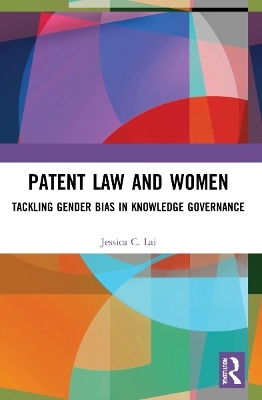
Patent Law and Women
Tackling Gender Bias in Knowledge Governance
Seiten
2023
Routledge (Verlag)
978-1-032-07957-8 (ISBN)
Routledge (Verlag)
978-1-032-07957-8 (ISBN)
This book analyses the gendered nature of patent law.
This book analyses the gendered nature of patent law and the knowledge governance system it supports.
The vast majority of patented inventions are attributed to male inventors. While this has resulted in arguments that there are not enough women working in science, technology, engineering and mathematics, this book maintains that the issue lies with the very nature of patent law and how it governs knowledge. The reason why fewer women patent than men is that patent law and the knowledge governance system it supports are gendered. This book deconstructs patent law to reveal the multiple gendered binaries it embodies, and how these in turn reflect gendered understandings of what constitutes science and an invention, and a scientist and an inventor. Revealing the inherent biases of the patent system, as well as its reliance on an idea of the public domain, the book argues that an egalitarian knowledge governance system must go beyond socialised binaries to better govern knowledge creation, dissemination and maintenance.
This book will appeal to scholars and policymakers in the field of patent law, as well as those in law and other disciplines with interests in law, gender and technology.
This book analyses the gendered nature of patent law and the knowledge governance system it supports.
The vast majority of patented inventions are attributed to male inventors. While this has resulted in arguments that there are not enough women working in science, technology, engineering and mathematics, this book maintains that the issue lies with the very nature of patent law and how it governs knowledge. The reason why fewer women patent than men is that patent law and the knowledge governance system it supports are gendered. This book deconstructs patent law to reveal the multiple gendered binaries it embodies, and how these in turn reflect gendered understandings of what constitutes science and an invention, and a scientist and an inventor. Revealing the inherent biases of the patent system, as well as its reliance on an idea of the public domain, the book argues that an egalitarian knowledge governance system must go beyond socialised binaries to better govern knowledge creation, dissemination and maintenance.
This book will appeal to scholars and policymakers in the field of patent law, as well as those in law and other disciplines with interests in law, gender and technology.
Jessica C. Lai is Associate Professor of Commercial Law, Victoria University of Wellington, New Zealand.
Introduction
1 Gendered Patenting
2 The Organising Force of Gender
3 Feeding the Cyborg
4 The Consequences of Gendered Patent Law and Patenting
5 Deconstructing the Lore
6 Of Monsters and Men
7 Reconstructing the Law
8 Conclusion
| Erscheinungsdatum | 06.09.2021 |
|---|---|
| Zusatzinfo | 4 Tables, black and white; 5 Line drawings, black and white; 5 Illustrations, black and white |
| Verlagsort | London |
| Sprache | englisch |
| Maße | 156 x 234 mm |
| Gewicht | 300 g |
| Themenwelt | Recht / Steuern ► EU / Internationales Recht |
| Recht / Steuern ► Wirtschaftsrecht ► Handelsrecht | |
| Recht / Steuern ► Wirtschaftsrecht ► Urheberrecht | |
| Technik ► Umwelttechnik / Biotechnologie | |
| ISBN-10 | 1-032-07957-6 / 1032079576 |
| ISBN-13 | 978-1-032-07957-8 / 9781032079578 |
| Zustand | Neuware |
| Informationen gemäß Produktsicherheitsverordnung (GPSR) | |
| Haben Sie eine Frage zum Produkt? |
Mehr entdecken
aus dem Bereich
aus dem Bereich
mit Einführungsgesetz, Publizitätsgesetz und …
Buch | Softcover (2024)
dtv Verlagsgesellschaft
10,90 €


